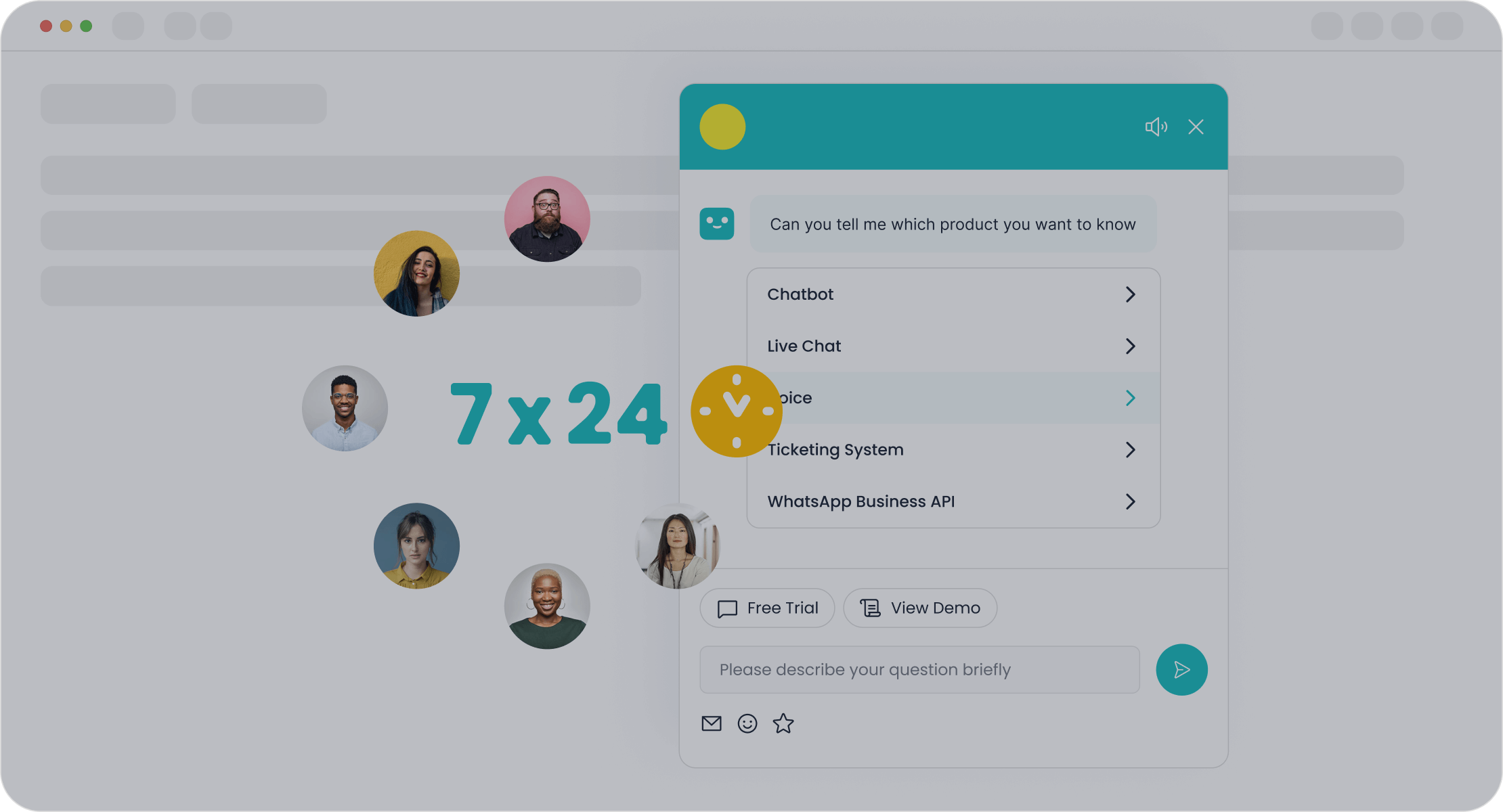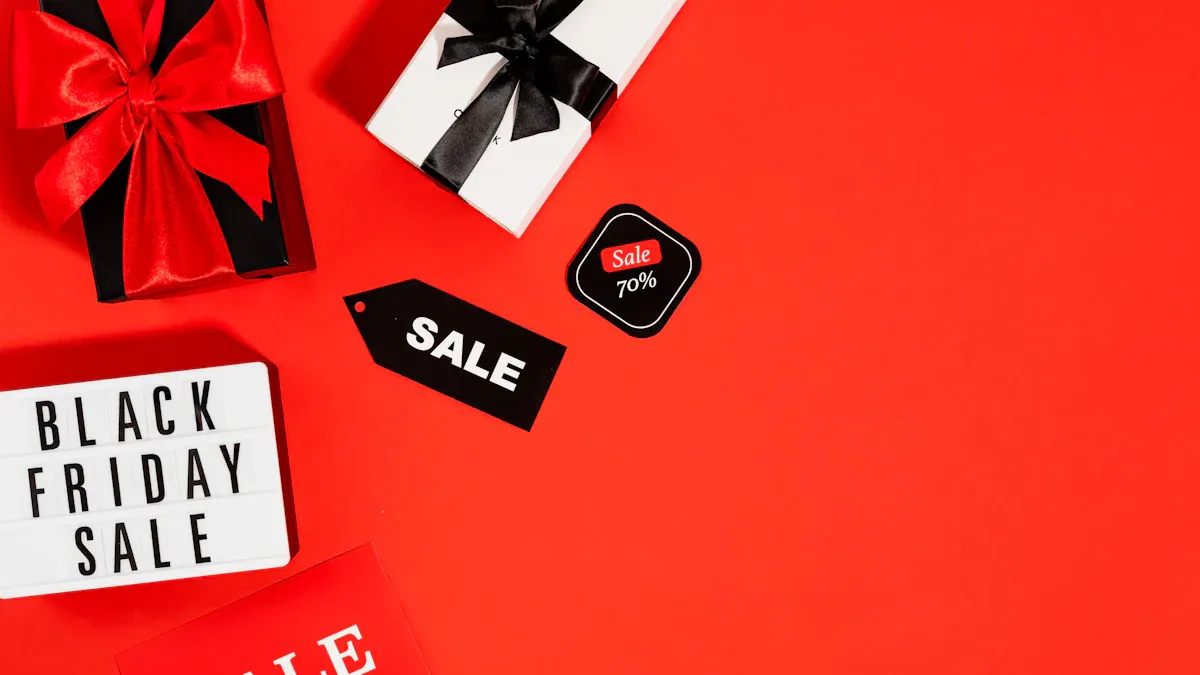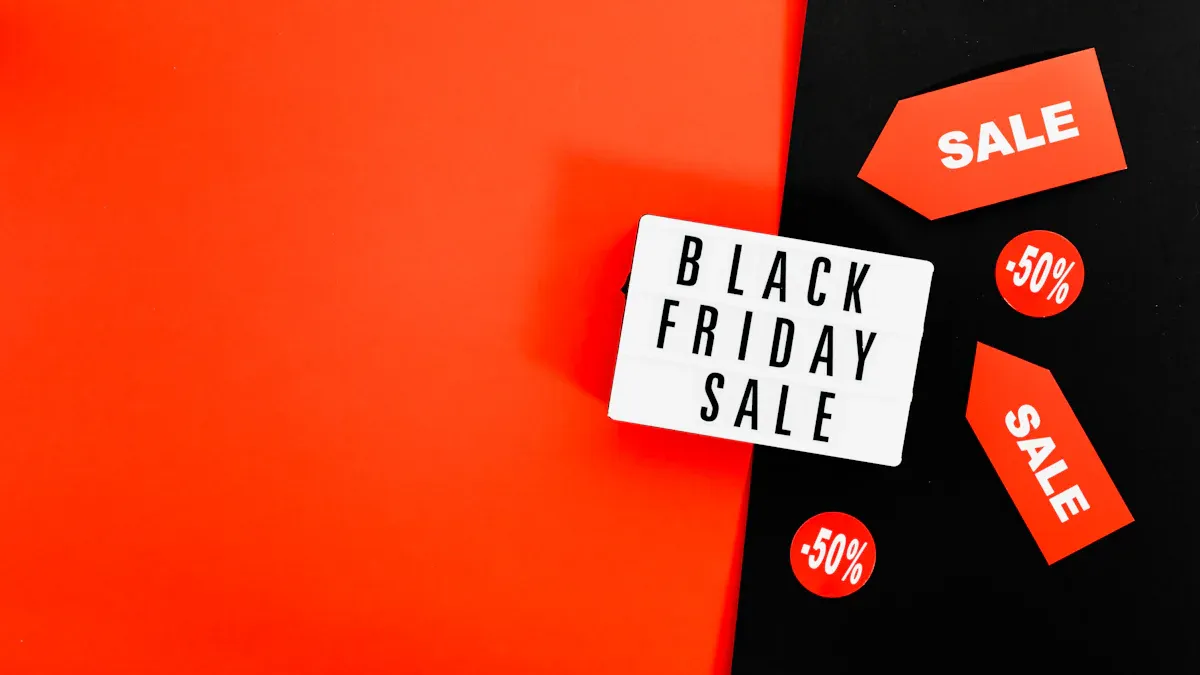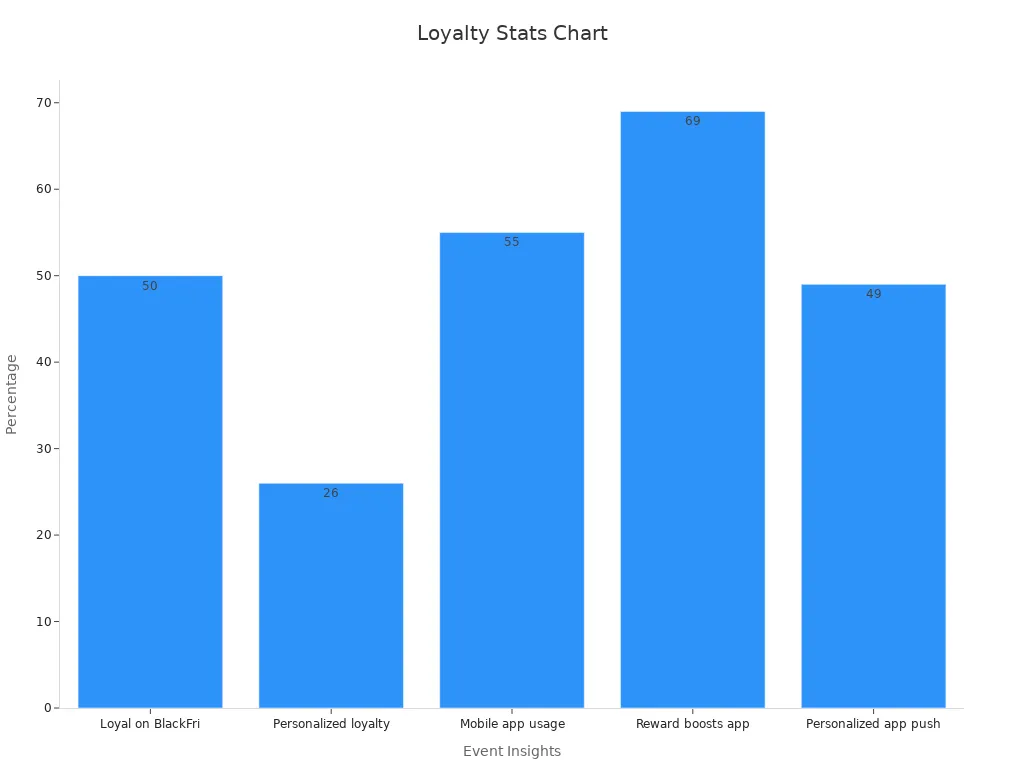How to Plan Black Friday Campaigns for Maximum Impact

Early planning plays a vital role in the success of Black Friday campaigns. Many shoppers, about 32%, start their purchases early, reflecting a growing trend toward extended sales periods. Retailers like Amazon now launch promotions weeks in advance. By preparing early, you can align your black friday marketing strategies to meet customer expectations and maximize sales. Tools like Sobot can further enhance your campaign efficiency.
Set the Foundation for Black Friday Success
Define Clear Goals for Your Black Friday Campaign
Establishing clear goals is the first step in creating impactful Black Friday campaigns. You should focus on measurable objectives like increasing Return on Ad Spend (ROAS), boosting Average Order Value, or reducing cart abandonment rates. These metrics help you evaluate your campaign's financial performance and customer engagement. Setting SMART goals—Specific, Measurable, Achievable, Relevant, and Time-Based—ensures your efforts remain focused and effective.
For example, you can aim to increase your click-through rate by 15% through personalized email campaigns. Segmenting your audience and tailoring messages to their preferences can significantly enhance engagement. Consistently monitoring key performance indicators (KPIs) allows you to adapt your strategies in real-time, ensuring your goals align with customer behavior.
Create a Budget Aligned with Your Campaign Objectives
Your budget should reflect your campaign's goals and target audience. Start by identifying your profitability thresholds and allocating funds to high-performing channels. Recent trends show a shift in consumer shopping habits, with more people shopping online during Black Friday. This makes online PPC advertising a critical area for investment.
Consider adjusting your budget allocation to focus on bottom-of-funnel (BOFU) campaigns. For instance, shifting from a 70/30 split between top-of-funnel (TOFU) and BOFU efforts to a 50/50 balance can drive more conversions. Real-time performance tracking also helps you reallocate funds to platforms delivering the highest ROI.
Conduct Market Research and Analyze Competitor Strategies
Market research is essential for understanding customer expectations and staying ahead of competitors. Analyzing competitor strategies can reveal valuable insights. For instance, PUMA’s UK team used a promotional dashboard to track Black Friday performance and adjust their approach in real-time. This strategy led to a 15%-20% revenue increase.
You can adopt similar tactics by studying your competitors’ promotions and identifying gaps in their offerings. Use these insights to create customer-centric campaigns that address common frustrations, such as limited stock or unclear discounts. Tools like Sobot’s marketing solution can help you track ROI and optimize your campaigns across multiple channels.
Build a Timeline to Prepare Your Business for Black Friday
Three Months Before: Strategic Planning and Goal Setting
Start preparing your business for Black Friday three months in advance. Early planning allows you to set clear objectives and align your strategies. Focus on acquiring new customers, clearing old stock, and re-engaging past buyers. Build segmented email lists to target different customer groups effectively. Analyze data from previous campaigns to identify successful tactics and areas for improvement. Optimize your website to ensure fast load times, as slow pages can deter shoppers.
Review past performance to refine your approach. Use A/B testing to determine which marketing materials resonate most with your audience. Social media analytics tools can provide valuable insights into customer behavior. These steps will help you create a solid foundation for your campaigns.
One Month Before: Finalizing Marketing and Operational Details
With one month to go, finalize your marketing and operational plans. Launch early campaigns to capture the attention of eager shoppers. Flash sales can create urgency and drive quick purchases. Develop dedicated landing pages for Black Friday deals to enhance the shopping experience. Segment your email lists to deliver personalized promotions that boost engagement.
Ensure your mobile experience is seamless, as many customers shop on their phones. Social media can amplify your reach. Collaborate with influencers or create interactive campaigns to generate excitement. These strategies will prepare your business for Black Friday and help you stand out in a competitive market.
One Week Before: Testing Systems and Ensuring Readiness
The final week is critical for testing your systems. Conduct performance testing to evaluate how your website handles high traffic. Focus on response times, resource usage, and scalability. Continuous performance testing can help you identify and resolve issues in real time. Ensure your checkout process is smooth to reduce cart abandonment.

Train your team to handle increased customer inquiries. Tools like Sobot’s chatbot can manage repetitive queries, allowing your staff to focus on complex issues. These preparations will ensure your business operates efficiently during the Black Friday rush.
Black Friday Marketing Strategies to Drive Engagement

Craft High-Impact Email Campaigns
Email marketing remains one of the most effective black friday marketing strategies. Consumers expect to hear from brands early, with 57% looking for promotions at least a month before Black Friday. Personalized email campaigns can significantly boost engagement, as 80% of shoppers value tailored recommendations. Use segmentation to target specific customer groups and A/B testing to refine your messaging. For example, test different subject lines or send times to determine what resonates best with your audience.
Interactive campaigns, such as emails with countdown timers or clickable deal previews, can further enhance engagement. Over 50% of consumers are more likely to interact with such features. Transactional messages, like order confirmations or shipping updates, also play a crucial role in the holiday shopping experience, with 94% of shoppers finding them important. By focusing on personalization and interactivity, you can create emails that drive both clicks and conversions.
Leverage Social Media to Build Anticipation
Social media platforms are powerful tools for building excitement around your holiday sales. Start your campaigns early to stay visible during the critical decision-making period. Techniques like teaser posts, countdowns, and exclusive previews can create a sense of urgency and anticipation. Sharing sneak peeks of limited-time offers or using cryptic posts to hint at upcoming deals keeps your audience engaged.
Buzz and anticipation are key to boosting brand awareness during Black Friday. For example, countdown timers on Instagram Stories or Facebook posts showcasing "doorbuster sale" items can generate excitement. These strategies not only attract attention but also ensure your brand remains top-of-mind as customers plan their holiday shopping.
Partner with Influencers for Broader Reach
Collaborating with influencers can amplify your campaigns and reach a wider audience. Influencer partnerships often result in higher engagement rates, with some brands achieving a 16% average on platforms like Instagram. For instance, combining influencer marketing with paid ads has proven to generate significant returns, as seen with Kettle + Fire, which earned $4 for every $1 spent.
Choose influencers whose audience aligns with your target market. Their endorsements can lend credibility to your brand and encourage followers to explore your holiday sales. Whether through product reviews, unboxing videos, or exclusive discount codes, influencers can help you connect with potential customers in an authentic and impactful way.
Plan Flash Sales and Exclusive Offers to Attract Customers
Flash sales and limited-time promotions are essential for creating urgency and driving quick purchases. These strategies often lead to a significant spike in sales volume, improved cash flow, and increased brand visibility. For example, offering exclusive deals for a few hours can attract new customers while encouraging existing ones to make repeat purchases.
Highlight the benefits of your limited-time offers in your marketing materials. Emphasize savings, exclusivity, and the short window of availability to motivate shoppers. Satisfaction is a common sentiment among Black Friday shoppers, so remind them of the value they’re getting. By planning flash sales strategically, you can enhance the holiday shopping experience and maximize your campaign’s impact.
Optimize Your Website and Technology for Black Friday

Ensure Mobile Optimization for Seamless Customer Experiences
Mobile optimization is essential for capturing the growing number of shoppers using smartphones. In 2023, mobile devices accounted for 79% of e-commerce traffic during Cyber Week, up from 76% in 2022. This trend highlights the importance of ensuring your website performs flawlessly on mobile devices. A mobile-friendly site improves user experience, helping you retain customers and boost sales.
Focus on responsive design to ensure your website adapts to different screen sizes. Simplify navigation so users can find products quickly. High-quality images and clear descriptions also play a crucial role in building trust. By optimizing your website for Black Friday, you can meet the expectations of mobile shoppers and maximize conversions.
Streamline the Checkout Process to Reduce Cart Abandonment
A streamlined checkout process can significantly reduce cart abandonment rates. Many shoppers abandon their carts due to lengthy or complicated checkouts. Simplify this process by implementing a single-page checkout. Auto-fill features can save time for new customers, while progress indicators reduce anxiety by showing how many steps remain. Offering guest checkout options eliminates barriers for first-time visitors.
These small changes can have a big impact. For example, a faster checkout process encourages customers to complete their purchases, especially during high-traffic events like Black Friday. Optimizing your website for Black Friday with these strategies ensures a smoother shopping experience and higher conversion rates.
Use Sobot’s Chatbot to Handle High Traffic and Customer Queries
High traffic during Black Friday can overwhelm your customer support team. Sobot’s AI-powered chatbot offers a solution by managing repetitive queries and assisting customers 24/7. This tool enhances efficiency by resolving common issues, such as order tracking or product availability, without human intervention. It also supports multiple languages, ensuring seamless communication with diverse audiences.
The chatbot’s ability to operate across various channels, including WhatsApp and SMS, makes it a versatile addition to your Black Friday strategy. By integrating Sobot’s chatbot, you can improve customer satisfaction, reduce response times, and focus your team on complex inquiries. This approach not only optimizes your website for Black Friday but also ensures a positive shopping experience for your customers.
Execute Your Black Friday Campaign Flawlessly
Monitor Promotions and Adjust in Real-Time
Real-time monitoring is essential for executing successful Black Friday campaigns. Use an eCommerce dashboard to track metrics like click-through rates, page views, and session durations. These insights help you identify which promotions resonate with your audience. For example, if a specific product page sees high traffic but low conversions, you can adjust the offer or optimize the page layout to improve performance.
Keep an eye on inventory levels to avoid promoting out-of-stock items. Real-time bid adjustments can also optimize your ad spend, ensuring your budget focuses on high-performing channels. Additionally, analyze cart abandonment rates to identify and resolve checkout issues. Implementing strategies like image compression and lazy loading can improve page load times, enhancing the user experience.
| Step | Description |
|---|---|
| 1 | Identify Critical Endpoints: Focus on key API endpoints like /search and /sales for testing. |
| 2 | Gather Baseline Metrics: Collect data on latency and request distribution to understand performance under load. |
| 3 | Define Success Criteria: Set acceptable latency thresholds, e.g., "latency < 100 ms for 99% of calls." |
By monitoring these aspects, you can make data-driven adjustments that maximize conversions and ensure your campaigns run smoothly.
Engage Customers with Sobot’s Live Chat for Instant Support
During Black Friday, customer inquiries often surge. Sobot’s Live Chat provides a seamless way to manage these interactions. The platform allows you to handle conversations across multiple channels, ensuring no query goes unanswered. Its AI-powered chatbot resolves common issues quickly, reducing inbound discussion volume by 20% and improving customer satisfaction to over 96%.
For example, if a customer has questions about a promotion or needs help with checkout, Sobot’s Live Chat offers instant assistance. The tool also provides personalized service for VIP customers, enhancing their trust and loyalty. With over 80% accuracy in responses, Sobot ensures your customers receive reliable information, even during high-demand periods.
| Evidence Type | Details |
|---|---|
| AI Resolution Speed | The AI chatbot resolves customer issues quickly, enhancing support during high-demand periods. |
| Customer Satisfaction Improvement | Positive feedback increased to over 96%, and inbound discussion volume reduced by 20%. |
| Personalized Service | Enhanced service for VIP customers, increasing their trust and satisfaction. |
Integrating Sobot’s Live Chat into your campaigns not only improves customer engagement but also boosts conversions by addressing concerns in real time.
Provide Exceptional Customer Service to Build Loyalty
Exceptional customer service during Black Friday can turn one-time shoppers into loyal customers. Statistics show that 50% of U.S. consumers remain loyal to brands they purchase from during Black Friday. Personalizing your service further enhances this loyalty, as 26% of shoppers prefer brands that tailor their marketing efforts.
Offer rewards or incentives to encourage repeat purchases. For instance, 69% of shoppers are more likely to use an app if rewards are available. Personalized messages also play a crucial role, with 49% of consumers increasing app usage when communication feels tailored to their needs.

By focusing on customer satisfaction and personalization, you can build long-term relationships that extend beyond Black Friday. Tools like Sobot’s solutions help you deliver consistent, high-quality service, ensuring your customers feel valued and appreciated.
Post-Black Friday Preparation Strategies for Long-Term Success
Analyze Campaign Performance and Gather Insights
Analyzing your Black Friday campaigns is essential for understanding what worked and what didn’t. Start by reviewing key metrics such as total sales, conversion rates, and website traffic. These metrics help you evaluate your sales performance and identify top-performing products. Operational metrics like checkout abandonment rates and website uptime reveal areas for improvement in your processes.
Customer engagement metrics, including email open rates and social media reach, provide insights into how well your marketing efforts resonated with your audience. Additionally, customer satisfaction metrics, such as return rates and feedback, highlight areas where you can enhance the shopping experience. Use the table below to guide your analysis:
| Metric Type | Specific Metrics | Purpose |
|---|---|---|
| Sales Performance Metrics | Total sales, Product-specific sales, Conversion rates | Evaluate overall sales and identify top-performing products and conversion efficiency. |
| Customer Engagement Metrics | Website traffic, Social media reach, Email open and clickthrough rates | Measure engagement levels and effectiveness of marketing efforts during the campaign. |
| Operational Metrics | Checkout abandonment rate, Website uptime | Assess operational efficiency and ensure website reliability during peak traffic. |
| Customer Satisfaction Metrics | Return rates, Customer feedback and reviews | Gauge customer satisfaction and identify areas for improvement post-campaign. |
By gathering these insights, you can refine your black friday preparation strategies for future campaigns.
Follow Up with Customers to Build Relationships
Building strong relationships with your customers after Black Friday ensures long-term success. Start by sending thank-you emails personalized with the customer’s name and purchase details. Follow up with exclusive Cyber Monday deals to keep the momentum going. Introduce loyalty programs to encourage repeat purchases and reward customer loyalty.
Use purchase data to recommend related products or upcoming deals. For example, if a customer bought a smartphone, suggest accessories like cases or chargers. Request feedback to understand their experience and improve your service. As one expert noted, “Black Friday is never only about just the quick sale; but rather a chance to create a lasting and profitable relationship with customers.”
Here’s a step-by-step approach to follow-up strategies:
- Send thank-you emails with personalized details.
- Offer exclusive Cyber Monday deals to Black Friday shoppers.
- Invite customers to join loyalty programs for added perks.
- Recommend related products based on their purchases.
- Request reviews or feedback to enhance future campaigns.
These steps help you turn one-time buyers into loyal customers.
Plan for Cyber Monday and Future Campaigns
Cyber Monday marketing offers another opportunity to boost sales and engagement. Email marketing remains a powerful tool, delivering an average return of $41 for every $1 spent. Personalized marketing enhances customer engagement by making them feel valued. For example, use their purchase history to tailor your messages and offers.
User-generated content, such as reviews or social media posts, acts as social proof. It builds trust and encourages potential customers to shop with you. Planning for future campaigns also ensures you stay ahead of the competition. Analyze your Black Friday and Cyber Monday results to identify trends and adjust your strategies.
Include these tactics in your Cyber Monday marketing plan:
- Use email campaigns to promote exclusive deals.
- Personalize offers to increase customer engagement.
- Encourage customers to share their experiences online.
- Track performance metrics to refine future campaigns.
By planning strategically, you can maximize the impact of your bfcm campaigns and maintain customer interest year-round.
Early planning is the cornerstone of a successful Black Friday campaign. It allows you to set clear goals, create a timeline, and implement effective strategies. Optimizing your website and using tools like Sobot’s Chatbot ensures smooth operations and excellent customer service. Automation tools can significantly boost results, as shown below:
| Case Study | Outcome |
|---|---|
| Podcast Insights | Grew conversions by 1099% with retargeting |
| Win In Health | Increased revenue by 300% |
| Woodside Communities | Made $294,435 in under two months |
| ClickBank University | Doubled sales |
By following these steps, you can maximize your Black Friday impact and build lasting customer relationships.
FAQ
What is the best time to start planning for Black Friday?
Start planning three months before Black Friday. Early preparation helps you set goals, create strategies, and optimize your website for high traffic.
How can Sobot’s Chatbot improve my Black Friday campaign?
Sobot’s Chatbot handles repetitive queries 24/7, reduces agent workload, and enhances customer satisfaction. It also supports multiple languages, ensuring seamless communication with diverse audiences.
Why is mobile optimization important for Black Friday?
Most shoppers use smartphones during Black Friday. A mobile-friendly website ensures fast load times, easy navigation, and better user experiences, leading to higher conversions.
See Also
Explore 12 Essential Live Chat Tools for Shopify Growth
Improve Your Shopify Revenue Using Live Chat Solutions
Maximize Your Live Chat Performance Around the Clock
